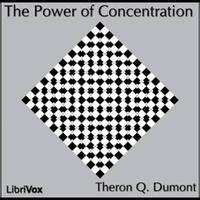LESSON XV. CONCENTRATE SO YOU WILL NOT FORGET
A man forgets because he does not concentrate his mind on his purpose, especially at the moment he conceives it. We remember only that which makes a deep impression, hence we must first deepen our impressions by associating in our minds certain ideas that are related to them.
We will say a wife gives her husband a letter to mail. He does not think about it, but automatically puts it in his pocket and forgets all about it. When the letter was given to him had he said to himself, "I will mail this letter. The box is at the next corner and when I pass it I must drop this letter," it would have enabled him to recall the letter the instant he reached the mail box. The same rule holds good in regard to more important things. For example, if you are instructed to drop in and see Mr. Smith while out to luncheon today, you will not forget it, if, at the moment the instruction is given, you say to yourself something similar to the following:
"When I get to the corner of Blank street, on my way to luncheon, I shall turn to the right and call on Mr. Smith." In this way the impression is made, the connection established and the sight of the associated object recalls the errand.
The important thing to do is to deepen the impression at the very moment it enters your mind. This is made possible, not only by concentrating the mind upon the idea itself, but by surrounding it with all possible association of ideas, so that each one will reinforce the others.
The mind is governed by laws of association, such as the law that ideas which enter the mind at the same time emerge at the same time, one assisting in recalling the others.
The reason why people cannot remember what they want to is that they have not concentrated their minds sufficiently on their purpose at the moment when it was formed.
You can train yourself to remember in this way by the concentration of the attention on your purpose, in accordance with the laws of association.
When once you form this habit, the attention is easily centered and the memory easily trained. Then your memory, instead of failing you at crucial moments, becomes a valuable asset in your every-day work.
Exercise in Memory Concentration. Select some picture; put it on a table and then look at it for two minutes. Concentrate your attention on this picture, observe every detail; then shut your eyes and see how much you can recall about it. Think of what the picture represents; whether it is a good subject; whether it looks natural. Think of objects in foreground, middle ground, background; of details of color and form. Now open your eyes and hold yourself rigidly to the correction of each and every mistake. Close eyes again and notice how much more accurate your picture is. Practice until your mental image corresponds in every particular to the original.
Nature is a Wonderful Instructor. But there are very few who realize that when we get in touch with nature we discover ourselves. That by listening to her voice, with that curious, inner sense of ours, we learn the oneness of life and wake up to our own latent powers.
Few realize that the simple act of listening and concentrating is our best interior power, for it brings us into close contact with the highest, just as our other senses bring us into touch with the coarser side of human nature. The closer we live to nature the more developed is this sense. "So called" civilization has over developed our other senses at the expense of this one. Children unconsciously realize the value of concentration—for instance: When a Child has a difficult problem to solve, and gets to some knotty point which he finds himself mentally unable to do—though he tries his hardest—he will pause and keep quite still, leaning on his elbow, apparently listening; then you will see, if you are watching, sudden illumination come and he goes on happily and accomplishes his task. A child instinctively but unconsciously knows when he needs help, he must be quiet and concentrate.
All great people concentrate and owe their success to it. The doctor thinks over the symptoms of his patient, waits, listens for the inspiration, though quite unconscious, perhaps, of doing so. The one who diagnoses in this way seldom makes mistakes. An author thinks his plot, holds it in his mind, and then waits, and illumination comes. If you want to be able to solve difficult problems you must learn to do the same.

